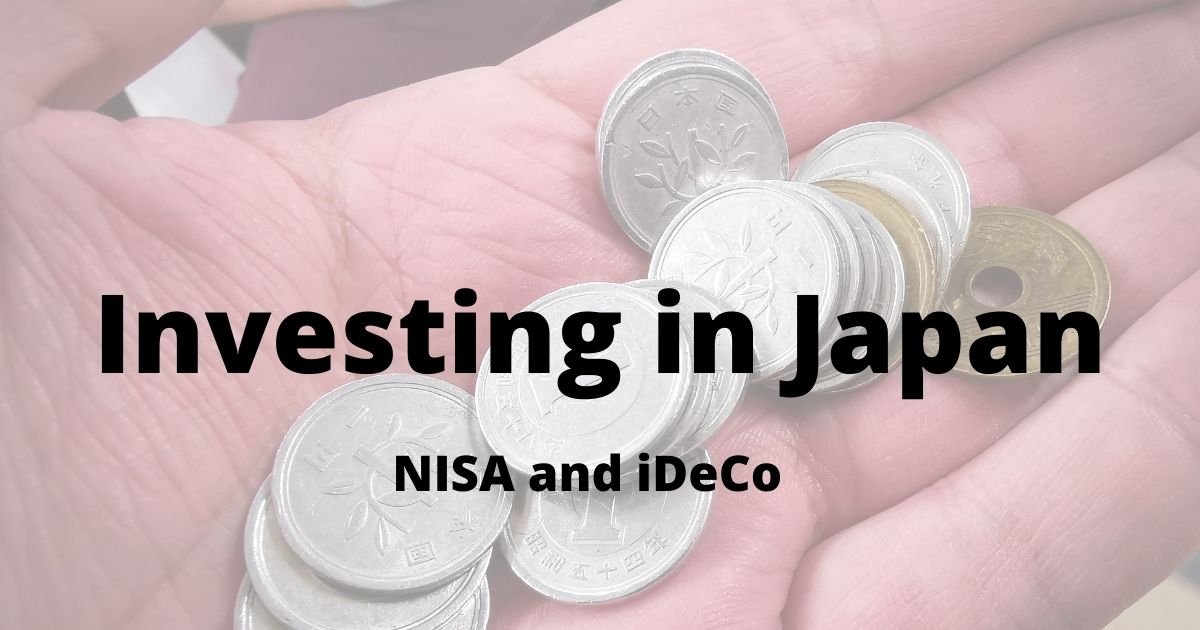As many people are aware, leaving your money sitting in the bank as savings isn’t the smartest way to store your savings. This especially applies to Japan, where you gain essentially zero interest on your bank savings.
The best thing to do, if you’re lucky enough to have any disposable income, is to invest your money. You can do this back home, but you may be wondering how to invest in Japan.
There are many options, but we will introduce a few of the main investment platforms in basic detail.
NISA
NISA, short for Nippon Individual Savings Account, involves buying stocks or other investments and not pay tax on the dividends or capital gains for five to 20 years. You are able to access your money at any time. All residents of Japan over age 20, including non-citizens, are eligible to use NISA.
How can you open a NISA account?
Most banks, security firms and online brokers offer this option. If you want to do it online, you may need help with Japanese. Many firms will deny you if you cannot speak and read Japanese. You can use a company like Rakuten to set it up as a foreigner, but the interface is in Japanese. https://www.rakuten-sec.co.jp/nisa/. Please contact Omakase Helper for assistance if needed.
What kind of account can you open?
There is the ordinary account, which is tax free for five years. It allows a maximum investment of 1,200,000 yen per year.
There is the Tsumitate account which is tax free for 20 years. It allows a 400,000 yen per year investment. Only mutual funds are available and you must set up regular monthly transfers to the account.
There is the Junior NISA account, where you can deposit up to 800,000 yen per year for kids under 20.
Can you invest in anything?
You can invest in stocks, ETFs and trusts. Bonds are not allowed. As NISA is intended to be a “safe” investment option, foreign stocks and high-risk stocks are also not allowed.
Who should use NISA?
It’s a good option for people who are not so familiar with the stock market but want to make a safe investment that yields more than the bank.
iDeCo
iDeCo is a self-managed pension account where you buy investment mutual funds, insurance products and so on, and then receive the benefits when you reach 60 years old.
The government will reduce your income tax and city tax if you take part in this scheme.
The benefit to iDeCo is that you can invest your PRE-TAX income but then cash it out after retirement TAX-FREE* (the maximum amount is 22,000,000 yen).
From October there should be an English language government information site: https://www.ideco-koushiki.jp/english/
How can you open an iDeCo account?
Most banks and securities firms will allow you to open an iDeCo account. If they don’t offer English support, you will need an interpreter. Omakase Helper can assist you with this.
Here is a list of institutions and fees: https://www.dcnenkin.jp/search/commission.php
How much can you invest?
You can invest up to 23,000 yen a month if you are a employee at a company, 12,000 yen a month if you are a public servant (or a teacher at a private school or university), 68,000 yen a month if you pay into kokumin nenkin, or 23,000 yen if you are a dependent housewife or -husband.
Regarding what to invest in, you will want a diversified portfolio with both Japanese and foreign stocks. For advice, we recommend checking the forum at https://www.retirejapan.com.
Who should use iDeCo?
People who are eligible for iDeCo (people who pay into the national or company pension scheme), will be in Japan until retirement and don’t need the money until age 60 should use iDeCo. You are able to extend the withdrawal period to age 70 but without further contributions made.
If you leave Japan you can no longer contribute to the account, but you will be able to manage it and withdraw the funds to a foreign account.
This is an introduction to two of the best options for investing in Japan. Of course there are many more options for people with a broad knowledge of investments. If you wish to invest but need help communicating in Japanese, Omakase Helper can help you.


Comments are closed